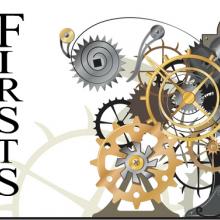songwriting
TWO OF THIS year’s most compelling music releases so far give a deeply personal voice to the moral, emotional, and psychological struggles of the men and women who have waged our long-term “war on terror.” Healing Tide by The War and Treaty is the first full-length recording from this husband-and-wife team; the husband, Michael Trotter Jr., became a musician during his time in Iraq and has since struggled with post-traumatic stress disorder. Meanwhile, Mary Gauthier’s Rifles and Rosary Beads features 11 songs co-written with Iraq and Afghanistan vets through the SongwritingWith:Soldiers (SW:S) project.
Trotter, the songwriter and keyboardist in The War and Treaty, enlisted in the Army in 2003 simply to provide health insurance and a steady paycheck for his daughter and first wife. Within six months he was in Iraq, stationed in the remains of one of Saddam Hussein’s palaces. One day, a captain who had taken Trotter under his wing and knew that he could sing took him into a rubble-strewn room that held a piano. Trotter had never played in his life, but in his downtime he taught himself and started writing songs.
Then that captain was killed in action. Trotter wrote a song and performed it at the captain’s memorial. The song was “Dear Martha,” which the band still performs, and it made such an impression on all the soldiers at the memorial that Trotter’s colonel tasked him to write and perform a song for the memorial services of soldiers who died in action.
Editor's Note: This is the first post in a series called FIRSTS, where some of us take a look at classic works of art, music, film and literature for the first time. We hope that a fresh perspective on these influential pop-cultural artifacts will inspire discussion and interest that outlasts the shelf-life of daily reviews.
Townes Van Zandt
The Late Great Townes Van Zandt (1972)
Townes Van Zandt isn’t a songwriter I’ve heard many people praise (or even acknowledge, really.) But the few people I know who love him are folks with musical tastes I admire and respect.
One is my college roommate’s brother, who introduced both of us to the great Tom Waits during my junior year.
Another is a friend who’s always following a new dream, be it dropping out of school to travel, or finding work on farms and in coffee shops.
Both are people I’d describe as earthy and natural — devotees to folk tunes with lyrics that transcend contexts, offering timeless truths that smirk at popular culture’s music of cheap love and consumer-driven individuality.
So, this week I began listening to an album that my musical mentors hold dear — and one that I’ve never heard laid ears on before — Townes Van Zandt’s 1972 LP The Late Great Townes Van Zandt.
Singer-songwriter Denison Witmer’s 2005 album Are you a Dreamer? was part of the soundtrack of my adolescence — his calm voice a sonic companion as I navigated the choppy waters of high school insecurities; his complex fingerpicking acoustic guitar style a mentor as I learned to play and write my own music. Witmer’s soulful voice, thoughtful lyrics and inimitable style (some critics have called it “neo-folk” a la Cat Stevens or Nick Drake), has stuck with me for years. Just a snippet of his lyrics or melody can transport me back to precisely where I was when I first heard them, a younger me dreaming of who I might become.
When Witmer’s latest tour brought him through Washington, D.C. last month, I caught up with him backstage before his gig at the Sixth and I Historic Synagogue. We talked in the artist lounge and sound check stage, before venturing out for a couple of veggie wraps while exploring a variety of subjects from music and family to saints and beer. And we even managed to persuade him to play a couple of songs for us, which we’ve captured here on video for you. (You’re welcome.)
A moving feature piece in Thursday's Washington Post described a program that is helping veterans make the transition from war to civilian life through the arts — specifically music.
Staff Sergeant Kenneth Sargent sustained a serious spinal injury during a rocket attack in Iraq. After his struggle to walk again while readjusting to civilian life, he wanted to show the country doesn’t understand its soldiers and what they went through. So, he recently spent a weekend at a retreat near Colorado Spring sponsored by LifeQuest Transitions, a nonprofit organization dedicated to empowering veterans.
Paired with professional songwriters, Sargent began to tell his story. As the words came out, the writers “pick them up, assign them a shape, a melody, bending them into rhyme. Ninety minutes later, they’ve finished ‘It Is What It Is,’ a song about a soldier finally embarking on the homeward journey that he’s long anticipated — but in a medevac helicopter.”


